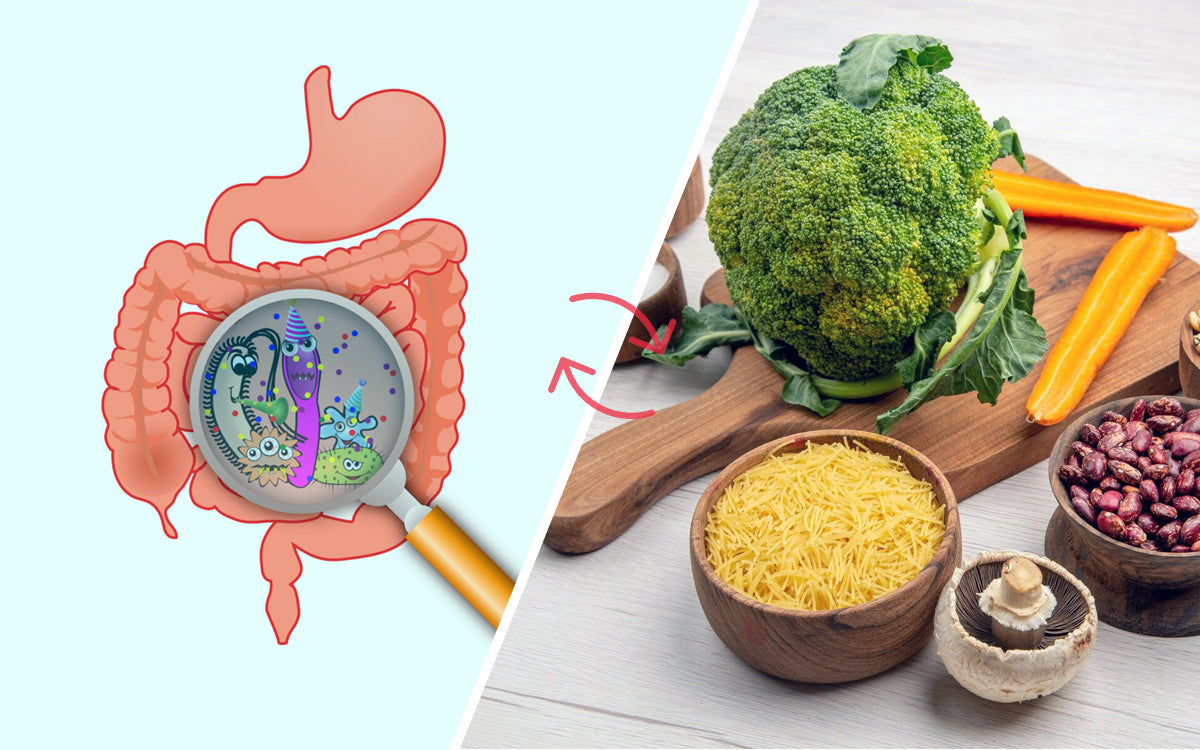
Why Fiber Matters The Essential Guide to a Balanced Gut Microbiome
Fiber is one of the most powerful allies in your quest for good health, yet it's often overlooked. While most people know that fiber is "good for digestion," few realize the incredible impact it can have on overall well-being. From supporting a healthy gut to influencing how we feel daily, fiber is essential for a balanced gut microbiome. Here’s why it matters and how you can easily incorporate it into your diet!
Intriguing Science Behind Fiber and the Gut Microbiome
Fiber Feeds Your Gut: Beneficial bacteria in your gut thrive on fiber. As they digest it, they produce short-chain fatty acids (SCFAs) that support the gut lining, immune function, and even influence mood.
The Gut and "Happy Hormone": About 95% of serotonin, the hormone affecting mood and sleep, is made in the gut. A healthy microbiome, supported by fiber consumption, plays a key role in its production.
Few People Get Enough Fiber: Only around 5% of people reach the recommended daily fiber intake, which is essential for overall health.
Fiber and Sleep: Studies suggest that a fiber-rich diet is linked to deeper, more restorative sleep—possibly due to its role in stabilizing blood sugar and supporting gut health.
Diverse Diet = Diverse Microbiome: Eating a range of fiber sources, like fruits, veggies, and whole grains, supports a varied microbiome, which is linked to better health.
The Gut-Brain Connection: Known as the “second brain,” the gut has a vast network of neurons communicating with the brain. Fiber supports this connection, potentially impacting mood and stress levels.
What is Fiber, and Why Does it Matter?
Fiber is a unique type of carbohydrate that’s found in plant-based foods. Unlike most carbs, fiber isn’t digested by the body. Instead, it moves through the gastrointestinal tract, where it plays key roles in gut health, supporting everything from digestion to immune function. Fiber comes in two main forms: soluble and insoluble. Each has its unique benefits:
- Soluble Fiber: This type dissolves in water to form a gel-like substance. It slows digestion, which can help you feel fuller for longer and helps manage blood sugar levels.
- Insoluble Fiber: This fiber doesn’t dissolve in water. Instead, it adds bulk to stool, helping food move more efficiently through the digestive tract—keeping things regular.
How Fiber Helps Fuel Your Gut Microbiome
Our gut is home to plenty of bacteria both beneficial and potentially harmful. A balanced microbiome relies on well-nourished beneficial bacteria, and that’s where fiber comes in. Specifically, certain types of fiber act as prebiotics, or food for these helpful microbes.
When you consume prebiotic fibers, they make their way to the large intestine, where the beneficial bacteria “feast” on them. This feeding process helps the good bacteria thrive, which in turn promotes a balanced and resilient gut environment. A thriving microbiome can influence digestion, nutrient absorption, and even mood and immune function!
The Benefits of a Fiber-Rich Diet for Gut Health
A diet high in fiber offers a multitude of benefits for gut health and beyond:
- Supports Regularity: Fiber helps maintain a steady digestive rhythm by adding bulk to stool, which supports regularity and helps prevent occasional discomfort.
- Balances Gut Bacteria: By feeding the beneficial bacteria in your gut, fiber plays a role in balancing your microbiota, which supports digestion and even immune health.
- Helps Manage Appetite: High-fiber foods can help you feel full longer, making it easier to manage hunger cues and support weight balance.
Easy Ways to Add More Fiber to Your Diet
Incorporating fiber into your diet doesn’t have to be complicated. Here are a few simple ways to get started:
- Start Your Day with Fiber: Begin your morning with a fiber-rich breakfast, like oatmeal topped with berries, chia seeds, or a sprinkle of nuts. This can be an easy, delicious way to set the tone for the day.
- Snack Smart: Reach for fiber-packed snacks like apples, carrots, celery sticks with hummus, or a handful of nuts. These options offer a natural fiber boost without added sugar or processed ingredients.
- Go for Whole Grains: When choosing grains, opt for whole grains like quinoa, brown rice, or whole-grain bread. These choices have more fiber and nutrients compared to refined grains like white rice or bread made from refined flour.
- Load Up on Vegetables: Try to add a variety of vegetables to your meals throughout the day. Leafy greens, broccoli, Brussels sprouts, and bell peppers are all excellent sources of fiber.
Final Thoughts: Fiber for a Happier Gut
Getting enough fiber can make a real difference in your daily well-being. By nourishing your gut microbiome and supporting digestive health, fiber can help you feel more balanced, energized, and satisfied. So, as you plan your next meal, think about how you can add a bit more fiber to support a happier, healthier gut and ultimately, a happier, healthier you.
Fiber is the foundation for a balanced gut and a well-nourished body. Whether you’re just starting to incorporate more or are well on your way, remember that each fiber-rich choice brings you closer to a healthier microbiome and a vibrant life.